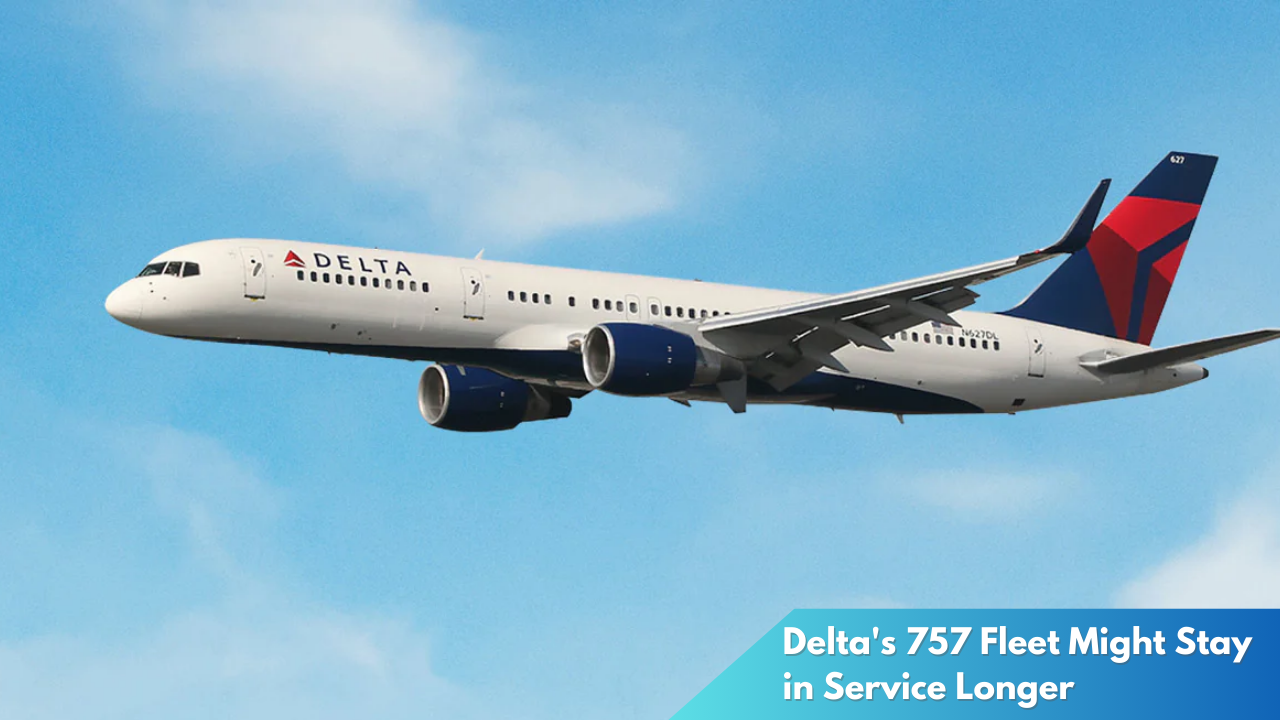Delta’s 757 Fleet Might Stay in Service Longer
Delta Air Lines, renowned for its strategic adaptability and robust fleet management, may be re-evaluating the retirement timeline of its aging Boeing 757 fleet. As the aviation industry undergoes a transformative period marked by technological advancements and environmental considerations, Delta’s decision signals a potential pivot in its operational strategy. This article delves into the airline’s possible extended use of the 757s and the factors influencing this decision.
Delta’s 757s: Extended Service on the Horizon

Delta Air Lines has long relied on its Boeing 757 fleet, a workhorse in its operations, for a range of domestic and international routes. Initially introduced to Delta’s fleet in the 1980s, the 757 has proven versatile and efficient, appealing to the airline’s need for a medium-capacity aircraft with significant range capabilities. Despite its age, the 757 remains a critical component of Delta’s operations, bridging the gap between smaller narrow-body and larger wide-body aircraft.
Recent reports suggest that Delta might extend the service life of these aircraft beyond their previously anticipated retirement dates. This decision is believed to be influenced by a convergence of factors including ongoing global supply chain disruptions, which have impacted the availability of new aircraft and components. By retaining the 757s longer than planned, Delta can maintain operational flexibility and ensure capacity while awaiting the stabilization of new aircraft deliveries.
Moreover, the 757’s unique operational profile continues to provide Delta with strategic advantages, particularly in serving niche markets and operating transcontinental flights. The aircraft’s ability to perform efficiently on longer routes and under various operational conditions makes it an indispensable asset. As Delta navigates its fleet strategy, the potential extension of the 757’s service life reflects an emphasis on pragmatic resource management and optimizing existing assets.
Fleet Longevity: Delta Rethinks 757 Retirement

Delta’s reconsideration of the 757’s retirement is not solely a response to external supply challenges but also a testament to the aircraft’s enduring performance and reliability. This longevity is supported by Delta’s commitment to rigorous maintenance programs and continual upgrades, ensuring that the 757s remain compliant with safety and efficiency standards. Such proactive measures have enabled Delta to maximize the utility of its fleet while minimizing operational disruptions.
The airline industry is currently in a period of profound transformation, driven by technological innovation and a growing focus on sustainability. While new-generation aircraft offer improved fuel efficiency and reduced emissions, the transition involves significant capital investment and logistical planning. By prolonging the 757’s tenure, Delta can strategically phase in newer models, aligning with broader environmental goals without compromising operational stability.
Delta’s decision may also reflect a broader industry trend of re-evaluating fleet retirement timelines in light of evolving market conditions. As airlines worldwide adapt to fluctuating demand patterns and economic uncertainties, maintaining a diverse and adaptable fleet becomes imperative. For Delta, the 757’s continued service underscores a balance between embracing innovation and valuing proven reliability.
The potential extension of Delta’s 757 fleet’s service life highlights the airline’s strategic foresight in navigating an evolving aviation landscape. By leveraging the 757’s capabilities amidst industry challenges, Delta demonstrates a commitment to optimizing its operations while planning for a sustainable future. As the airline considers its next steps, the decision to keep its 757s aloft serves as a reminder of the balance between embracing new technology and valuing time-tested assets.



